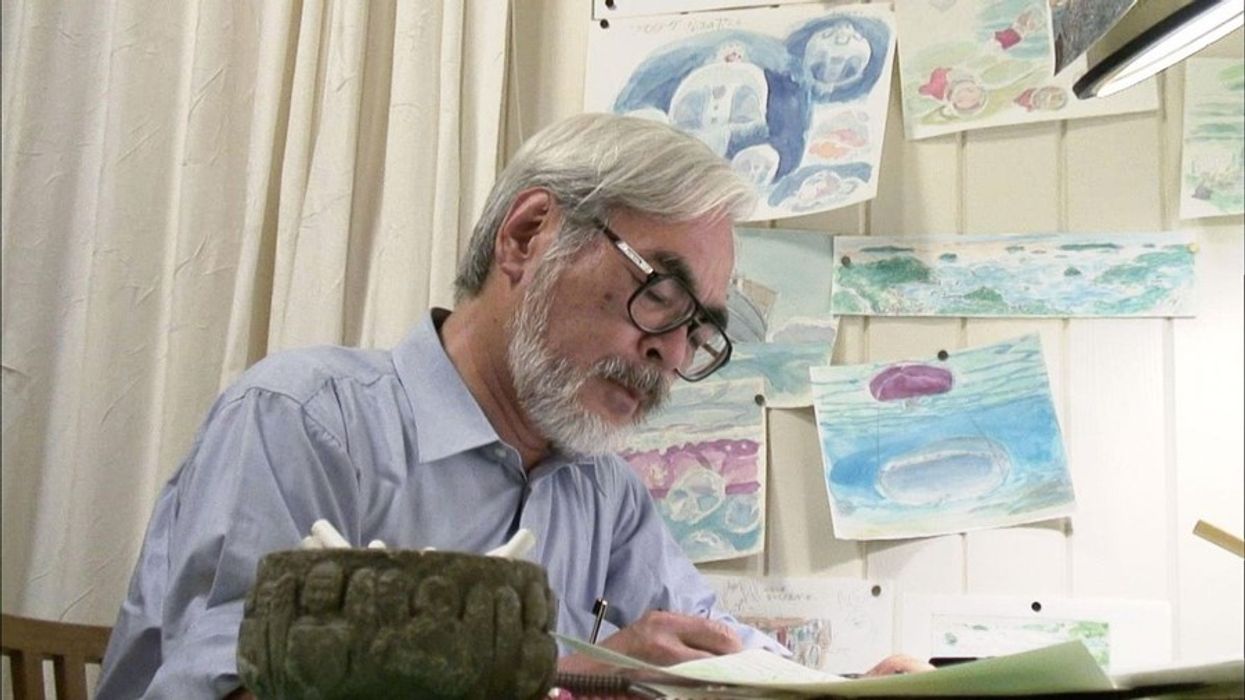What Hollywood Films Does Hayao Miyazaki Loathe?
Hayao Miyazaki may like many things—but these are not among them.

As one of the biggest contributors to the art of animation, Hayao Miyazaki has created many notable films that are deeply empathic and sympathetic, even if some of the characters are deplorable antagonists. Praised for his understanding of movement, Miyazaki has created some of our favorite and most beautiful animated films of all time, including Princess Mononoke and Spirited Away.
Miyazaki decided to make one final addition to his filmography before retiring from the world of cinema after his 60 years in the business. His final film, How Do You Live?, an adaptation of Yoshino Genzaburo’s novel of the same name, is the auteur’s last contribution to the cinema and storytelling that he has loved for his entire life.
One thing Miyazaki does not love about cinema is America’s globalization of its culture in the art form. Despite the fact that the Japanese filmmaker had named John Ford as one of his chief visual influences, naming his 1946 film My Darling Clementine among his favorite films, Miyazaki doesn’t bother with many American films.

According to multiple interviews that Kotaku found through Japanese blogs, there are excerpts from the same publications that reveal that Miyazaki did not criticize Hollywood films, but those who enjoy its films.
“Americans shoot things and they blow up and the like, so as you’d expect, they make movies like that,” Miyazaki stated in an interview. “If someone is the enemy, it’s okay to kill endless numbers of them.Lord of the Rings is like that. If it’s the enemy, there’s killing without separation between civilians and soldiers. That falls within collateral damage.”
Miyazaki has started multiple conversations about antiwar and pacifist beliefs that were deeply influenced by his own experience. Throughout his work, Miyazaki has explored the paradoxes of pacifism in a world that turns toward violence to solve problems. For Miyazaki, these cinematic spectacles do nothing to entertain him or bring him any joy.
Miyazaki compared the visual politics of big-budget Hollywood productions to the country’s international policies, and highly criticized America’s actions in Afghanistan by stating that such projects are a dangerous addition to public discourse because they diminish the value of human life.

Miyazaki continued, stating, “How many people are being killed in attacks in Afghanistan? The Lord of the Rings is a movie that has no problem doing that. If you read the original work, you’ll understand, but in reality, the ones who were being killed are Asians and Africans. Those who don’t know that, yet say they love fantasy are idiots.”
Miyazaki has spoken out about his dislike of American culture over the years, even refusing to attend the Oscars to accept the award when his magnum opus,Spirited Away, became the first anime to win Best Animated Feature Film.
Miyazaki was also very critical of Steven Spielberg’s Indiana Jonesseries, referring to it as a glorified tale of capitalism in post-colonial nations.
“Even in the Indiana Jones movies, there is a white guy who, ‘bang,’ shoots people, right? Japanese people who go along and enjoy with that are unbelievably embarrassing,” he said. “You are the ones that, ‘bang,’ get shot. Watching [those movies] without any self-awareness is unbelievable. There’s no pride, no historical perspective. You don’t know how you are viewed by a country like America.”
Miyazaki advises those who watch the franchise to recognize the political and racial allegories embedded within the subtexts of the supposedly innocent and family-friendly entertainment of the action films.

All films are saying something about the world around us. Whether it be through allegories or stated plainly through exposition, as viewers, we must understand the media we are consuming. I am not saying that you shouldn’t enjoy movies that are pro-American, but you should be aware of what the story is trying to communicate to its audience by understanding the subtext and the power of visual language.
Movies have the power to speak to everyone from across the world, so make sure you are creating a movie with a message that speaks to what you believe in. Sure, your story will not translate for everyone, but all that matters is that you are proud of the story that you put out for the world to see.
What do you think about Miyazaki’s stance on his least favorite movie? Let us know in the comments below!
Source: Kotaku

 'Anora'Neon
'Anora'Neon Annie Johnson Kevin Scanlon
Annie Johnson Kevin Scanlon









